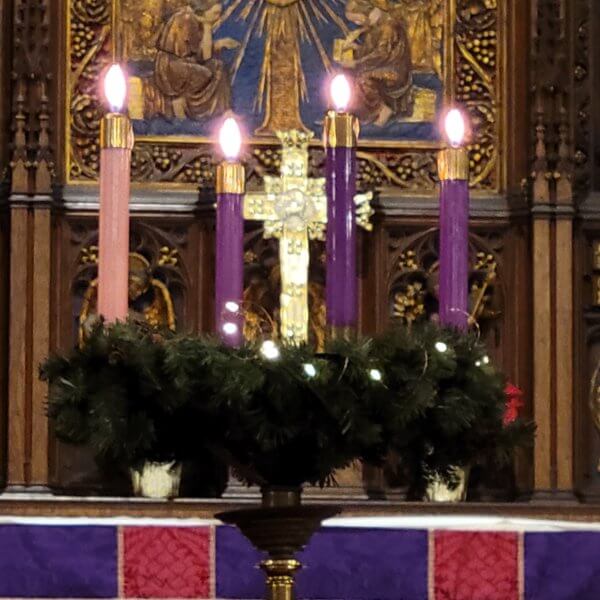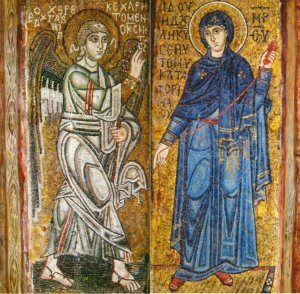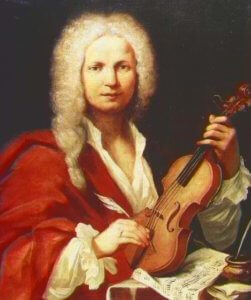
Let’s Sing Mary’s Song
 Today we read the story of the Annunciation from Luke’s Gospel — that time when the Angel Gabriel appeared to Mary to tell her that she would bear the son of God. There has been a great deal of debate in recent years over whether Mary had a choice in the matter or was basically drafted into the role of Mother of God. Was Mary an innocent teenager, swept up against her will in God’s grand plan of salvation? Was she a powerless subject of decisions made for her by others?
Today we read the story of the Annunciation from Luke’s Gospel — that time when the Angel Gabriel appeared to Mary to tell her that she would bear the son of God. There has been a great deal of debate in recent years over whether Mary had a choice in the matter or was basically drafted into the role of Mother of God. Was Mary an innocent teenager, swept up against her will in God’s grand plan of salvation? Was she a powerless subject of decisions made for her by others?
Well, maybe. But only for a minute. Mary chose her response to God’s invitation, focusing on the many ways she was blessed, not on what she lacked according to standard understandings of the personal or economic power of an unmarried, pregnant Jewish girl in first century Judea.
Gabriel greets Mary by name, telling her that God is with her — that she is even favored by God. Mary is not sure at all about this. Luke’s gospel tells us that she was greatly troubled at his words and wonders aloud what on earth kind of greeting this might be.
 But she hears him out. She asks good questions. She evaluates Gabriel’s answers. And then she says she’s all in: I am the Lord’s servant, she says. Let your word to me be fulfilled. But in this conversation with God’s messenger, the ball is still in Mary’s court. What if she hadn’t been home when Gabriel stopped by? What if she’d said she had to wait until the bread was out of the oven, or until she finished up this big project at work? Or that she would have to get back to him when she freed herself up from some other commitments, like her betrothal to Joseph? What if she’d just said no? I wonder if God had a backup plan for human salvation.
But she hears him out. She asks good questions. She evaluates Gabriel’s answers. And then she says she’s all in: I am the Lord’s servant, she says. Let your word to me be fulfilled. But in this conversation with God’s messenger, the ball is still in Mary’s court. What if she hadn’t been home when Gabriel stopped by? What if she’d said she had to wait until the bread was out of the oven, or until she finished up this big project at work? Or that she would have to get back to him when she freed herself up from some other commitments, like her betrothal to Joseph? What if she’d just said no? I wonder if God had a backup plan for human salvation.
Mary says Yes
But Mary says yes to God through Gabriel, and then lets loose with a mighty song of fulfillment and reversal. The Magnificat, Mary’s great song of joy as she learned that she would bear the incarnate God, comes right after this morning’s gospel reading. My soul magnifies the Lord, Mary sings. My spirit rejoices in God my Savior, for the Mighty One has lifted up the lowly and filled the hungry with good things.
 Mary’s joyful response wasn’t focused on the hard parts — bearing the Messiah under Roman occupation while betrothed but not yet married to Joseph. Mary was rejoicing that God lifted her up and satisfied her hunger with good things. The Magnificat — Mary’s song of praise — is the knowing and powerful song of someone who has already entered into partnership with God:
Mary’s joyful response wasn’t focused on the hard parts — bearing the Messiah under Roman occupation while betrothed but not yet married to Joseph. Mary was rejoicing that God lifted her up and satisfied her hunger with good things. The Magnificat — Mary’s song of praise — is the knowing and powerful song of someone who has already entered into partnership with God:
My soul proclaims the greatness of the Lord.
My spirit rejoices in God my Savior.
For the Mighty One has done great things for me.
He has lifted up the lowly,
filled the hungry with
good things.
This is not a wish list or expectations for the future — this is a list of the great things God has done that Mary saw the minute that she said yes to God. Mary doesn’t mention the money and power she doesn’t have, or her youth and inexperience. Instead, she sings of God’s favor and great abundance.
The Magnificat
 How can we sing Mary’s song? The Magnificat has a wonderful connection to our hopes for Emmanuel Church, as we move toward our space partnership with the Newport Music Festival. St. Martin-in-the-Fields in London is well known both as a concert and recording venue for great sacred music and as a worshiping community deeply engaged in social outreach, and is a model for Emmanuel’s potential to serve the community and change lives.
How can we sing Mary’s song? The Magnificat has a wonderful connection to our hopes for Emmanuel Church, as we move toward our space partnership with the Newport Music Festival. St. Martin-in-the-Fields in London is well known both as a concert and recording venue for great sacred music and as a worshiping community deeply engaged in social outreach, and is a model for Emmanuel’s potential to serve the community and change lives.
I read a 2014 article this week by Sam Wells, rector of St. Martin-in-the-Fields’, about St. Martin’s dual identity that relates directly to the Magnificat — and Mary’s great choice to live into abundance, rather than limits of fear and scarcity. Wells writes about the composer Antonio Vivaldi, who lived from 1678 to 1741 in Venice and wrote one of the great musical settings for the Magnificat. Vivaldi was also a Catholic priest and a violinist who worked as the choirmaster at local orphanage that supported its operations through performances of his compositions. One of those compositions was the Magnificat, Mary’s song.
How did the children in the orphanage sing Mary’s song? Vivaldi composed music for the choir to perform, drawing audiences to support the institution through donations and bequests. Vivaldi was giving young girls a song to sing, and offering them a chance to bring about their own redemption and the liberation of others like them. They were truly singing Mary’s song, incubating the gospel of transformation just as Mary, in her womb, was incubating the word of God.
 Vivaldi’s business plan has a lot in common with Emmanuel Church’s plans to share space with the Newport Music Festival, serving as a worshiping community, center for social outreach, and sacred music concert venue. How can we sing Mary’s song? We can live into this dynamic form of social enterprise that begins with celebrating what we do have, rather than lamenting our disadvantages. It’s a philosophy of abundance like Mary’s own song. Along the way, we’ll practice partnership, discipline, and teamwork, while remembering that our business sense and entrepreneurial imagination are just a few of the great things that God has given us to work with as partners with the Holy Spirit in Emmanuel’s future. Antonio Vivaldi forged a creative partnership among cultural, charitable, and commercial cultures, finding a way to harmonize those sometimes discordant melodies.
Vivaldi’s business plan has a lot in common with Emmanuel Church’s plans to share space with the Newport Music Festival, serving as a worshiping community, center for social outreach, and sacred music concert venue. How can we sing Mary’s song? We can live into this dynamic form of social enterprise that begins with celebrating what we do have, rather than lamenting our disadvantages. It’s a philosophy of abundance like Mary’s own song. Along the way, we’ll practice partnership, discipline, and teamwork, while remembering that our business sense and entrepreneurial imagination are just a few of the great things that God has given us to work with as partners with the Holy Spirit in Emmanuel’s future. Antonio Vivaldi forged a creative partnership among cultural, charitable, and commercial cultures, finding a way to harmonize those sometimes discordant melodies.
Let’s sing with Mary. Let’s sing Mary’s great song of abundance and gratitude, for the Mighty One has lifted us up and filled us with good things. Amen

